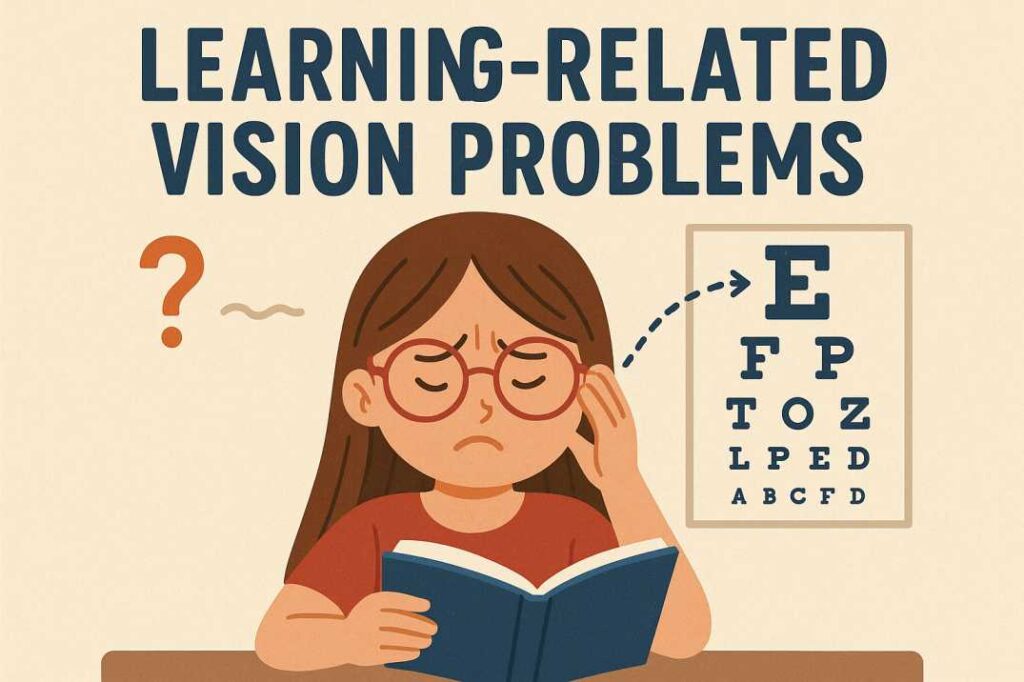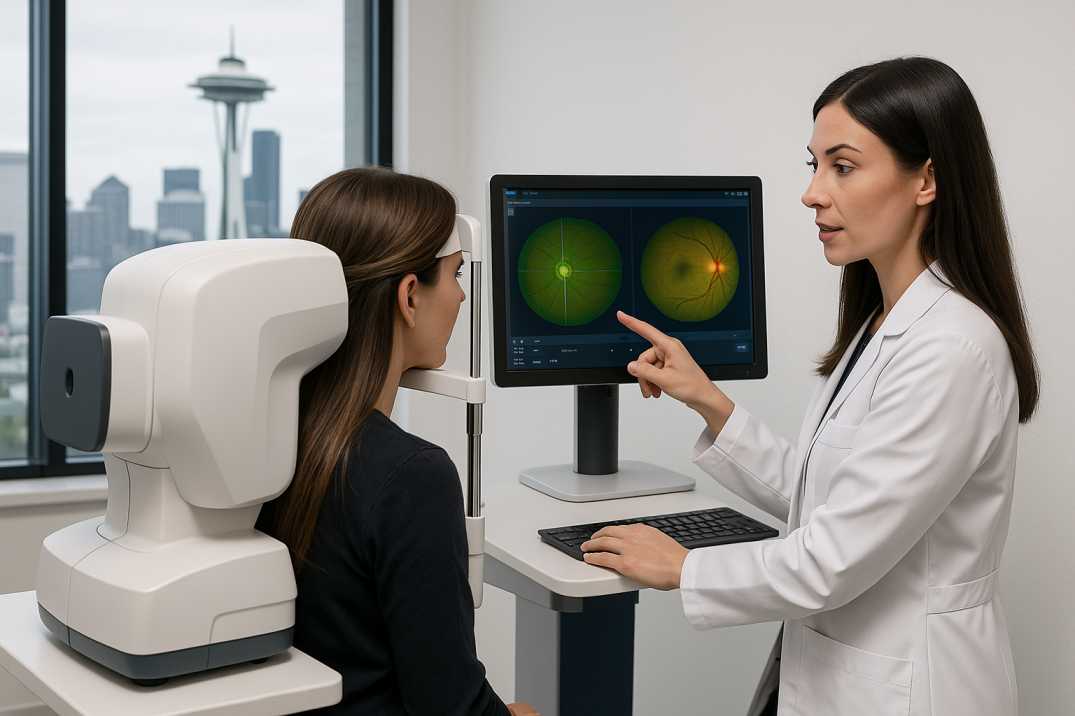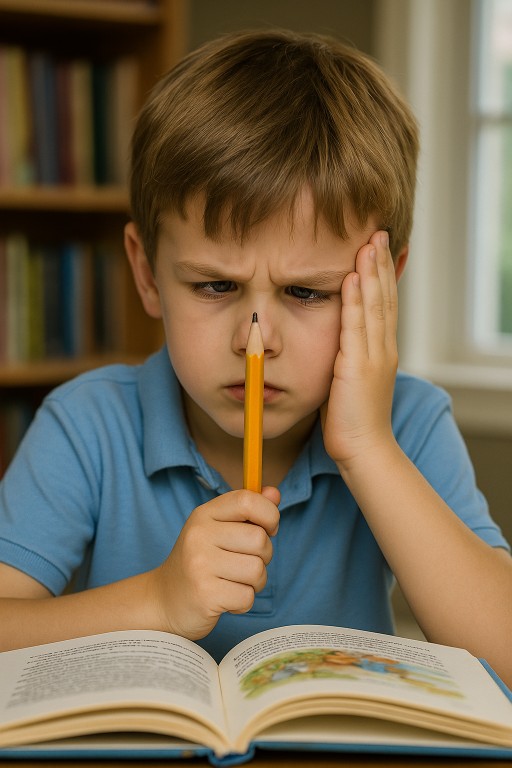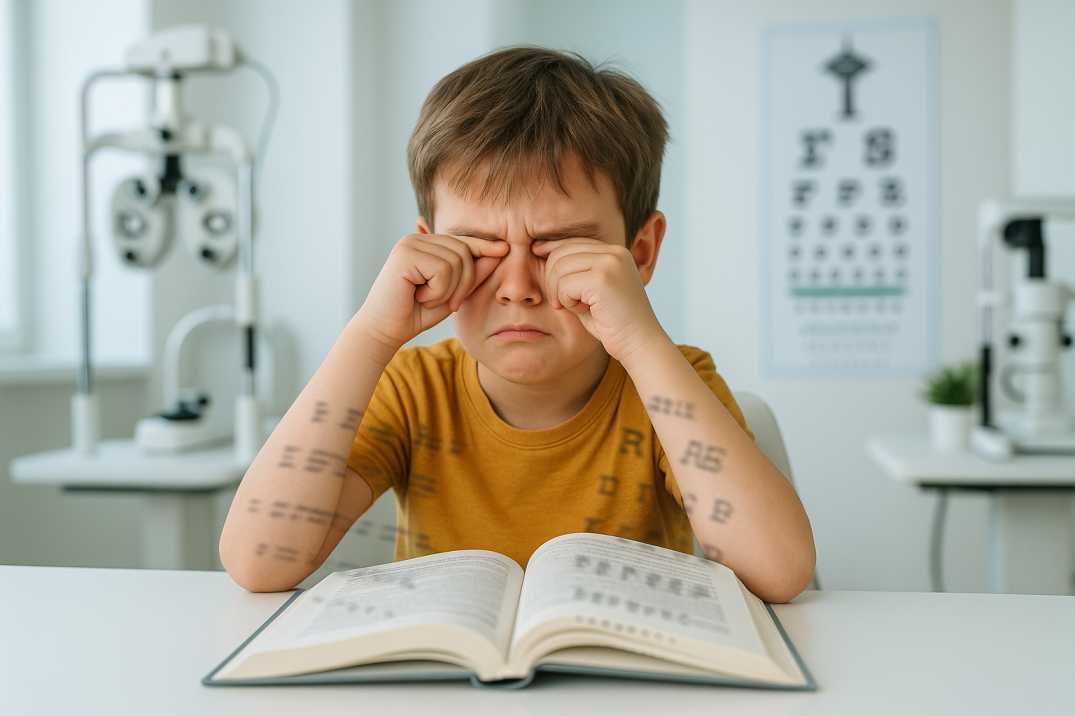Learning-Related Vision Problems
Is your child struggling to read, losing their place, or complaining about headaches at school? You’re not alone—thousands of families in Seattle and beyond face learning challenges linked to vision problems. This guide walks you through what learning-related vision problems are, how they impact academic success, and what steps you can take for lasting improvement, all backed by trusted research and Cannon EyeCare’s local expertise.
Key Takeaways
-
1 in 4 children may have an undiagnosed vision problem that impacts learning—often mistaken for ADHD or learning disabilities.
-
School screenings miss most functional vision issues; only a developmental optometrist can assess eye teaming, tracking, and processing skills.
-
Early intervention matters—addressing vision challenges can dramatically improve reading fluency, focus, and academic confidence.
-
Vision therapy is evidence-based, proven effective for functional vision deficits like convergence insufficiency, and tailored to each child’s needs.
-
Pairing vision therapy with occupational therapy and reading specialists creates the strongest outcomes for children with complex challenges.
-
Parents can help by tracking symptoms, advocating for assessments, and creating visually friendly study spaces at home.
-
Seattle families have a local advantage: Cannon EyeCare provides advanced, research-backed evaluations and therapy programs.
What Are Learning-Related Vision Problems?
Struggling in school? It might not be eyesight. Learning-related vision problems affect how your child’s eyes team up, track text, process information, or sustain focus—not just clarity. At Cannon EyeCare in Seattle, we emphasize that these hidden issues frequently disrupt reading fluency, writing, and classroom focus.
Key Insights for Seattle Families:
-
1 in 4 children has an undiagnosed visual disorder impacting learning.
-
Common challenges: eye teaming/tracking, visual processing, or perceptual difficulties.
Watch for These Signs:
-
Headaches or fatigue during homework
-
Skipping lines/rereading text
-
Short attention span
-
Avoids reading or hand-eye activities
-
Losing place frequently
2. Spotting Symptoms & Early Warning Signs
Is your child struggling in Seattle-area schools? Early detection is key. Watch for:
Academic Red Flags
-
Reading below grade level
-
Extremely slow homework completion
-
Frequent mistakes despite effort
Physical Discomfort
-
Eye strain or headaches after school
-
Rubbing eyes or squinting in classroom lighting
Behavioral Shifts
-
Avoiding reading/near work
-
Losing interest quickly in visual tasks
-
Expressing frustration with learning
Seattle Insight: At Cannon EyeCare, our developmental vision evaluations are specifically aligned with Seattle Public Schools’ curricula. Schedule an assessment if your child:
Often loses place while reading
Shows new anxiety toward schoolwork
Was previously misdiagnosed with ADHD/learning disabilities (studies show 20% of ADHD diagnoses may be vision-related)
3. Understanding Learning-Related Vision Conditions
Vision challenges impacting learning fall into two key categories:
Functional Vision Problems
(How eyes physically perform tasks)
-
Eye Teaming (Binocular Vision): Inability to coordinate both eyes for sustained focus during reading
-
Eye Tracking: Difficulty smoothly following text lines horizontally/vertically
-
Focusing Skills: Trouble rapidly shifting between near (desk work) and distant (whiteboard) objects.
Visual Processing Disorders
(How the brain interprets visual information)
-
Difficulty organizing, remembering, or making sense of visual input
-
Common struggles:
-
Copying notes from classroom boards
-
Distinguishing similar letters (b/d/p/q) or words
-
Real Seattle Case: Emma, a 9-year-old in Queen Anne Elementary, had plummeting spelling and reading scores. Cannon EyeCare diagnosed convergence insufficiency—a functional vision disorder—and customized vision therapy restored her academic confidence within months.
4. Diagnosis & Professional Assessment: Beyond Basic Screenings
School vision screenings often miss learning-related vision issues. For Seattle families, a developmental optometrist at Cannon EyeCare conducts comprehensive exams covering:
Critical Assessment Areas
-
Visual acuity (clarity at distance/near)
-
Eye teaming, tracking, and focusing stamina
-
Visual processing speed and perceptual skills
Our Seattle clinic uses advanced binocular rivalry tests and interactive digital assessments—aligned with 2025 SGE standards—to pinpoint hidden deficiencies traditional screenings overlook.
Home Readiness Checklist
Before your visit:
-
Observe your child’s reading posture/avoidance habits
-
Ask teachers about focus struggles or declining work quality
-
Use our free Seattle-Specific Vision Checklist
5. Evidence-Based Treatments & Vision Therapy Explained
What is Vision Therapy?
Vision therapy is a customized program of eye exercises and activities supervised by Cannon EyeCare’s Seattle optometrists to strengthen visual skills. Your child’s plan may include:
-
Eye movement training (tracking, saccades)
-
Computer-based visual processing exercises
-
Balance and coordination drills (eye-hand integration)
Scientific Support
Recent systematic reviews confirm that vision therapy effectively treats convergence insufficiency and functional vision deficits. While not a solution for general learning disabilities, our evidence-based protocols follow SAERA and Nature-published guidelines.
Integrated Treatment Paths
For complex cases with overlapping ADHD or dyslexia, we collaborate with Seattle specialists:
-
Occupational therapists for sensory integration
-
Reading specialists for literacy challenges
-
Multidisciplinary teams for comprehensive care
7. Actionable Steps for Seattle Parents & Educators
Empower your child’s learning journey with these proven strategies:
Proactive Monitoring
-
Track reading behaviors (keep a journal of struggles and strengths)
-
Note fatigue triggers during homework or screen time
School Advocacy
-
Request classroom accommodations (e.g., front-row seating)
-
Push for functional vision assessment referrals
Prevention First
-
Schedule annual exams with developmental screening at Cannon EyeCare
-
Pair checkups with school physicals (August/January)
Visual Learning Tweaks
-
Use large-print materials and color-coded notes
-
Minimize visual clutter in study spaces
Seattle-Specific Checklist
- Call Cannon EyeCare for comprehensive evaluations
- Share our Teacher’s Symptom Checklist (download here)
- Join local parent groups:
Seattle Children’s Vision Advocacy Network (Facebook)
King County Learning Differences Coalition (monthly meetings)
8. Comparing Treatments: Vision Therapy vs. Alternative Approaches
Vision Therapy at Cannon EyeCare
-
Best For: Functional vision issues (eye teaming, tracking, processing) confirmed through exams
-
Core Benefit: Directly strengthens visual skills with personalized exercises
-
Seattle Advantage: Our Queen Anne clinic uses SAERA/Nature-backed protocols
Occupational Therapy (OT)
-
Best For: Sensory processing or motor coordination challenges
-
Core Benefit: Enhances broader learning readiness (e.g., handwriting, focus)
-
Synergy: Complements vision therapy for Seattle kids with complex needs
Reading Specialists
-
Best For: Academic skill gaps (phonics, comprehension)
-
Core Benefit: Boosts classroom performance through targeted strategies
-
Key Insight: Addresses symptoms, not root causes—always pair with functional vision exams
Seattle-Specific Guidance: For children with overlapping ADHD/dyslexia, Cannon EyeCare collaborates with local OTs and specialists in a multidisciplinary plan.
Learning struggles don’t always mean your child needs harder work or a new label—they may simply need the right vision support. Functional vision problems are often hidden in plain sight, but with early detection and targeted therapy, children can unlock their full potential in reading, focus, and classroom performance.
Take the first step today: Schedule a comprehensive developmental vision evaluation at Cannon EyeCare. Our Seattle-based team utilizes advanced, research-backed methods to identify the root causes of learning difficulties and develop personalized treatment plans.
Call Cannon EyeCare now or book online to give your child the clarity, confidence, and academic success they deserve.
FAQs
-
Learning-related vision problems are functional visual issues affecting eye teaming, tracking, and processing that impact reading, writing, and academic performance. These aren’t about clarity but how eyes work together.




